Trailer Maintenance For Longevity
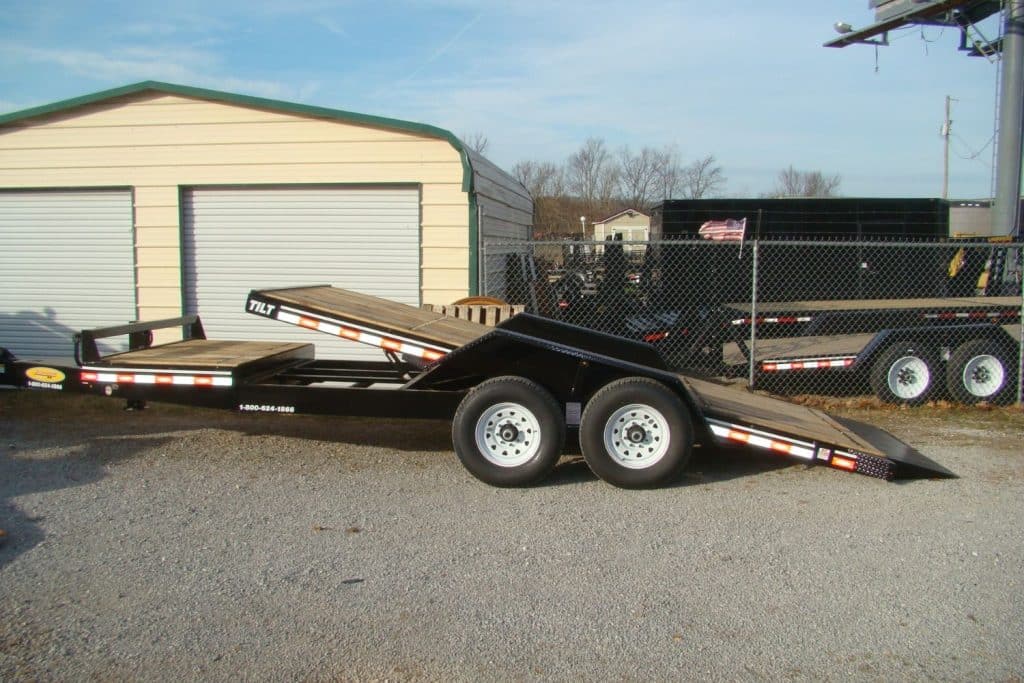
Regular maintenance for your trailer is important to ensure its longevity and safe towing. Before hitting the road, make sure all components are in good working order to avoid accidents and injuries. It is essential to have a professional inspection.
Regularly inspect, maintain, and service your trailer for a reliable and safe operation. If you do not know how to do so, have your dealer handle these tasks. Your trailer might need more frequent maintenance based on factors such as mileage, cargo weight, and environmental conditions. Always check your trailer’s owner’s manual for accurate information. If you’re unsure, follow the manufacturer’s recommendations. Trailer maintenance and inspection may include tires, brakes, lights and electrical, suspension, coupler and hitch, wheel bearings, flooring and decking, safety chains and hooks, trailer frame and body, and emergency equipment.
Tires: Trailer Maintenance
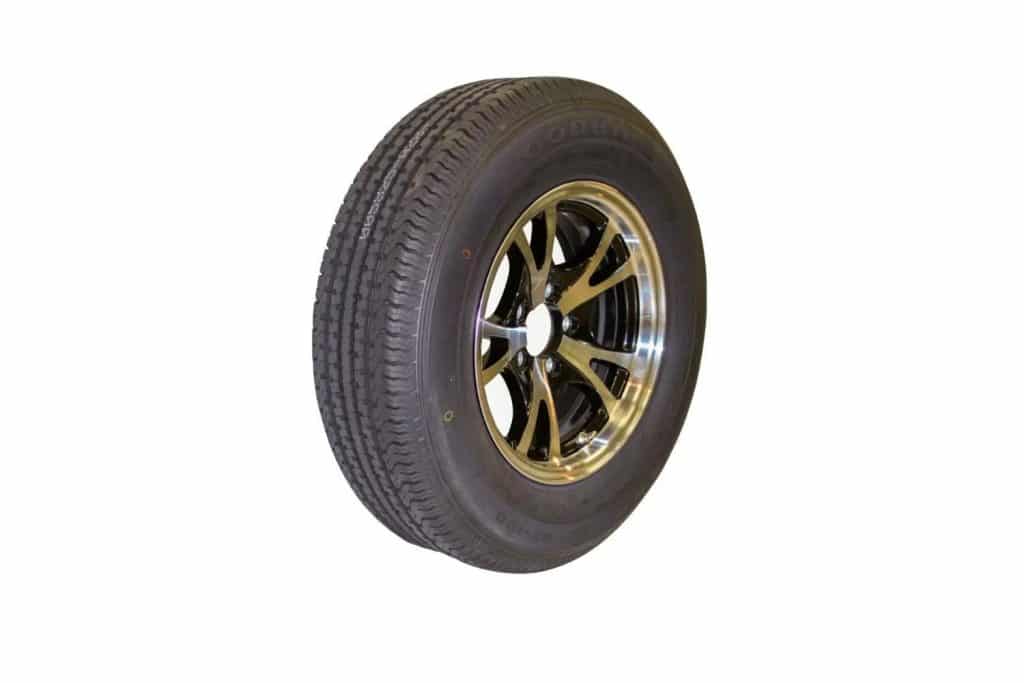
Your trailer’s tire plays an important role in maintaining safety and stability on the road.
a. Check Tire Pressure Regularly
Ensuring the appropriate tire pressure is important for both performance and safety. Improper tire pressure amount can lead to decreased fuel efficiency, uneven wear, and in extreme cases, tire blowouts. It is advisable to invest in a reliable tire pressure gauge and check the pressure regularly. Make sure the pressure matches the manufacturer’s guidelines, which can usually be found in your trailer’s manual or on a sticker located near the wheels.
b. Inspect Tires for Wear and Anomalies
A thorough visual inspection of your trailer’s tire is essential. Check for signs of wear, such as irregular tread patterns, which could indicate alignment issues. Bubbles or bulges on the tire surface are warning signs of potential internal damage that could result in a blowout. Take care of any irregularities immediately to prevent further damage and ensure the safety of both your trailer and its cargo.
c. Rotate Tires Regularly
Tire rotation is a preventive measure that promotes even wear across all tires. This not only extends the lifespan of your tires but also enhances overall towing stability. Follow the recommended rotation schedule outlined in your trailer’s manual or consult with a professional if you’re unsure. Typically, rotating your tires every 6,000 to 8,000 miles is a good rule of thumb.
Brakes: Trailer Maintenance
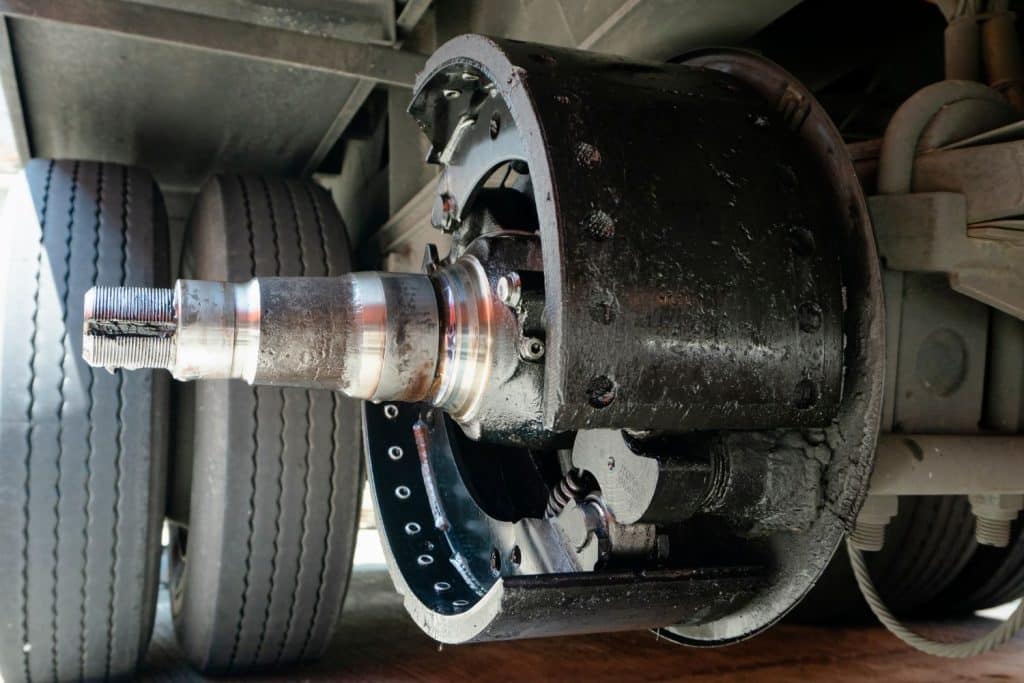
When it comes to towing safety, the condition of your trailer brakes is non-negotiable. Regular brake maintenance is crucial to ensure they respond promptly and function smoothly. Here are a few tips on how to maintain your trailer brakes for optimal performance.
- Responsiveness Check
Test your brakes for responsiveness regularly. This involves hitching your trailer and towing it for a short distance in a controlled setting. Pay attention to how quickly the brakes engage when you press the brake pedal. Any slow responses or delays may signal an issue that requires immediate attention.
- Pad and Shoe Inspection
The brake pads and shoes are the components that make direct contact with the brake rotors or drums, providing the necessary friction to slow down or stop the trailer. Regularly inspect these components for signs of wear and tear. If you notice uneven wear or if the pads have worn down to a certain thickness, it’s important to replace them immediately to maintain optimal braking performance.
- Fluid Levels Check
Your trailer’s braking system relies on the brake fluid as its vital component. Inspect the brake fluid reservoir to confirm it’s at the recommended level. Insufficient fluid levels can compromise brake function, resulting in reduced responsiveness. If the fluid is below the recommended level, top it up with brake fluid recommended by the manufacturer. Be cautious not to mix different types of brake fluids, as this can harm or damage the braking system.
- Brake Component Lubrication
Make sure all the moving parts within the braking system are properly lubricated. Lubricate components such as pins and caliper slides to prevent corrosion and ensure the brakes operate smoothly.
- Professional Inspection
In addition to routine checks, consider scheduling periodic professional inspections of your trailer brakes. Certified technicians can perform thorough assessments, including checking the brake lines, master cylinder, and overall system integrity.
Coupler and Hitch Trailer Maintenance
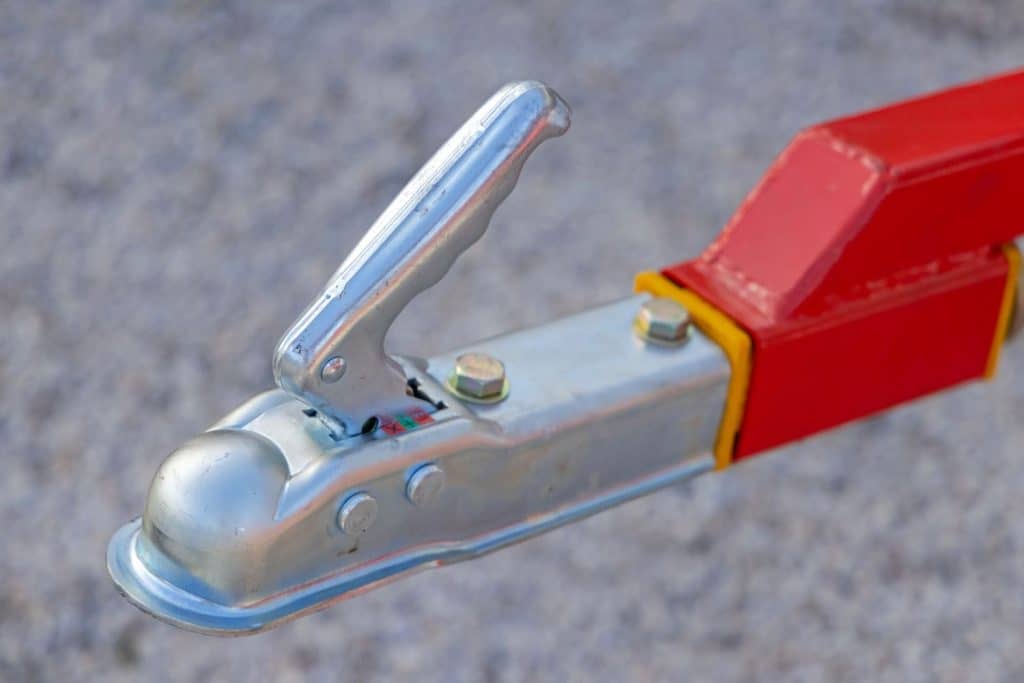
A smoothly functioning coupler and hitch are the key to secure and stress-free towing. Consistence maintenance and inspections are important to guarantee a reliable connection between your trailer and tow vehicle.
- Coupler Inspection
Start your maintenance routine by carefully inspecting the couple for any visible signs of wear or damage. Look out for dents, cracks, or misalignment that might jeopardize the coupling mechanism. A thorough visual inspection ensures the couple is in prime condition for hitching and towing.
- Hitch Attachment
Confirm that the hitch is securely attached to both the tow vehicle and trailer. Check for any loose nuts, bolts, or other fasteners. If you notice corrosion or rust, especially in areas prone to these issues, take immediate action to address them. Clean the affected areas and consider applying a rust-resistant painting or coating to prevent further deterioration. A stable and corrosion-free hitch is crucial for secure and effective towing.
- Lubrication for Smooth Operation
Keep the hitch mechanism well-lubricated to prevent stiffness and ensure smooth operation during coupling and uncoupling. Use a high-quality, all-weather lubricant for the moving parts, such as the latch mechanism and ball, following the manufacturer’s guidelines. Regular lubrication not only improves functionality but also minimizes wear and tear on the components.
- Safety Pin Check
If the hitch system of your trailer includes safety pins or clips, make sure you inspect them regularly to make sure they’re in good condition. Replace any worn or damaged pins to maintain a secure connection between the tow vehicle and the trailer.
- Ball and Socket
Examine the ball and socket of the coupler for signs of wear or damage. Make sure that the ball is free from any deformation or excessive wear, and make sure the socket isn’t excessively worn out.
- Weight Rating Confirmation
Confirm that the weight ratings for both the hitch and coupler match the load capacity of both the tow vehicle and trailer. Using a hitch with the appropriate weight ratings guarantees safe towing and reduces the risk of structural failure.
Suspension System Trailer Maintenance
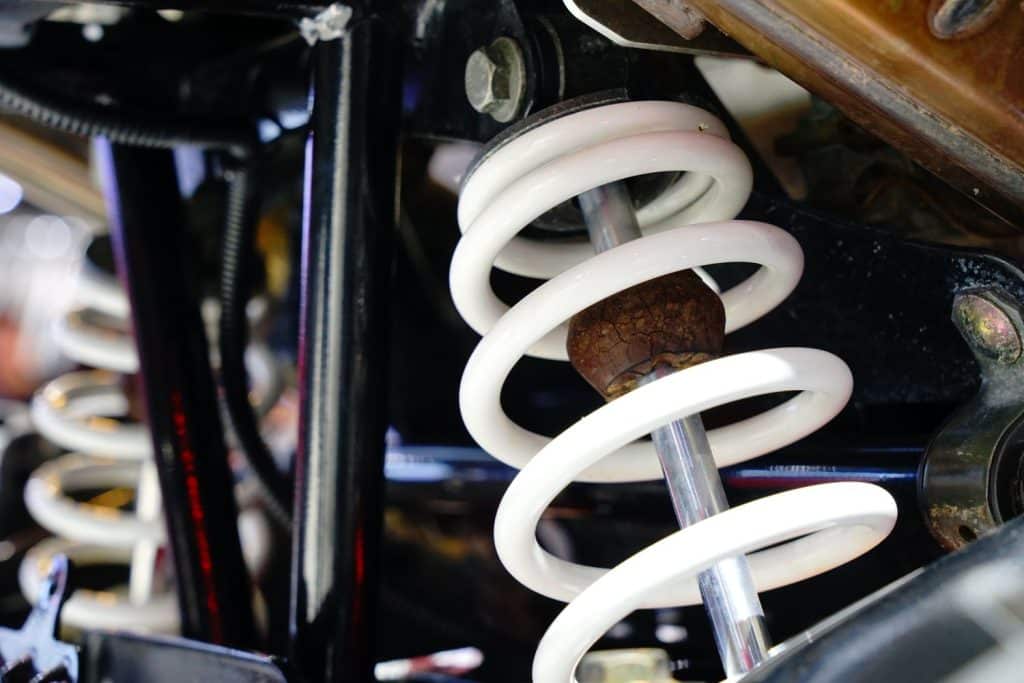
Regular inspections and maintenance of the suspension can ensure longevity and optimal performance. When inspecting, check for the following:
- Thorough inspection
Thoroughly check for any signs of wear and tear. Check out for bends, cracks, or worn-out components in the shocks, leaf springs, and other suspension components.
- Bolts and Bushings Inspection
Inspect the bolts and bushings for any damage or corrosion. If the bushings are too worn out, they can lead to increased vibrations and a less stable ride. Replace any components that show wear and tear to maintain the integrity of the suspension system.
- Spring Clean-Up
Leaf springs play an important part in your trailer’s suspension system. Inspect them for any signs of cracks, rust, or sagging. Replace any springs showing signs of damage to maintain proper load support.
- Shock Absorber Check
Regularly check the condition of your trailer’s shock absorber to make sure they are in good condition. Worn-out shock absorbers can lead to reduced stability and compromised handling. If you notice excessive bouncing, leaks, or a decline in overall performance, it’s time to replace the shock absorbers for a smoother ride.
- Alignment
Maintaining proper alignment is important to prevent uneven tire wear and ensure the durability of your trailer’s tires. Misaligned suspension can result in increased friction and irregular tread patterns. Inspect your alignment by examining tire wear. Consult a professional if you see any uneven wear.
Wheel Bearings: Trailer Maintenance
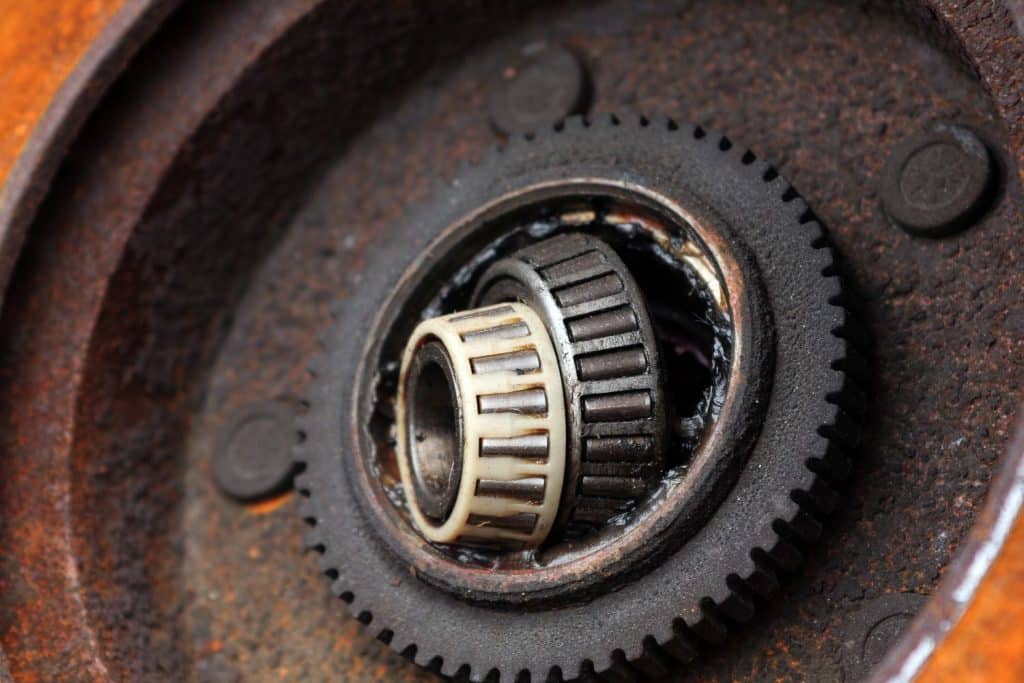
Follow these trailer maintenance steps to keep your wheel bearings in optimal condition.
- Greasing
Applying grease to your wheel bearings is crucial to keep them in good condition. Follow the manufacturer’s guidelines regarding the correct methods for greasing your wheel bearings. Using the recommended type of grease and applying it the correct way helps alleviate friction, wear, and heat, thereby enhancing the overall efficiency of your trailer’s wheel bearings.
- Monitoring while Towing
Pay attention to irregular sounds or vibrations while towing your trailer. These could be early indicators of potential problems with the wheel bearings.
Flooring and Decking Trailer Maintenance Tips
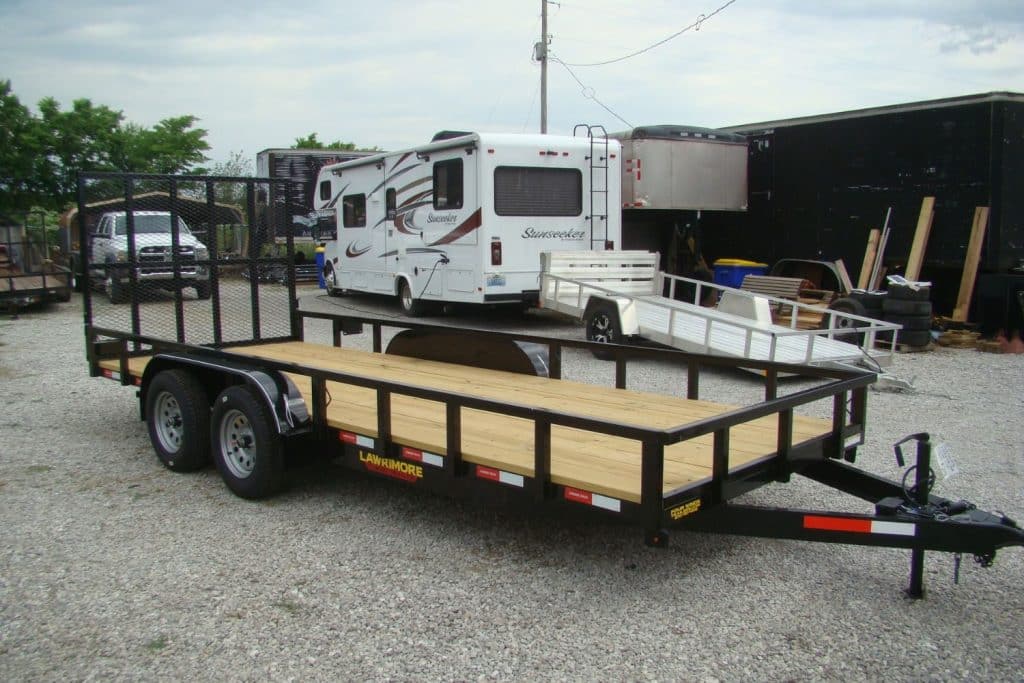
It is important to regularly check your trailer’s flooring for any signs of damage or rot. The flooring is an important component, and catching problems early can prevent more extensive damage. Check areas that are frequently exposed to moisture, as they are more vulnerable to deterioration.
Check for any damaged or loose deck boards, these boards are important for providing a stable surface for your belongings. Immediately replace any damaged boards or any boards showing wear to keep the structural integrity of the trailer deck.
Regularly clean the deck to remove debris such as leaves, dirt, or other materials. The buildup of debris can trap moisture, causing corrosion and damage over time. By maintaining the cleanliness of the deck, you not only prevent potential rust but also boost the overall durability of the trailer. A simple routine cleaning can go a long way in preserving the quality of your trailer’s deck, ensuring it remains in peak condition.
Trailer Frame and Body
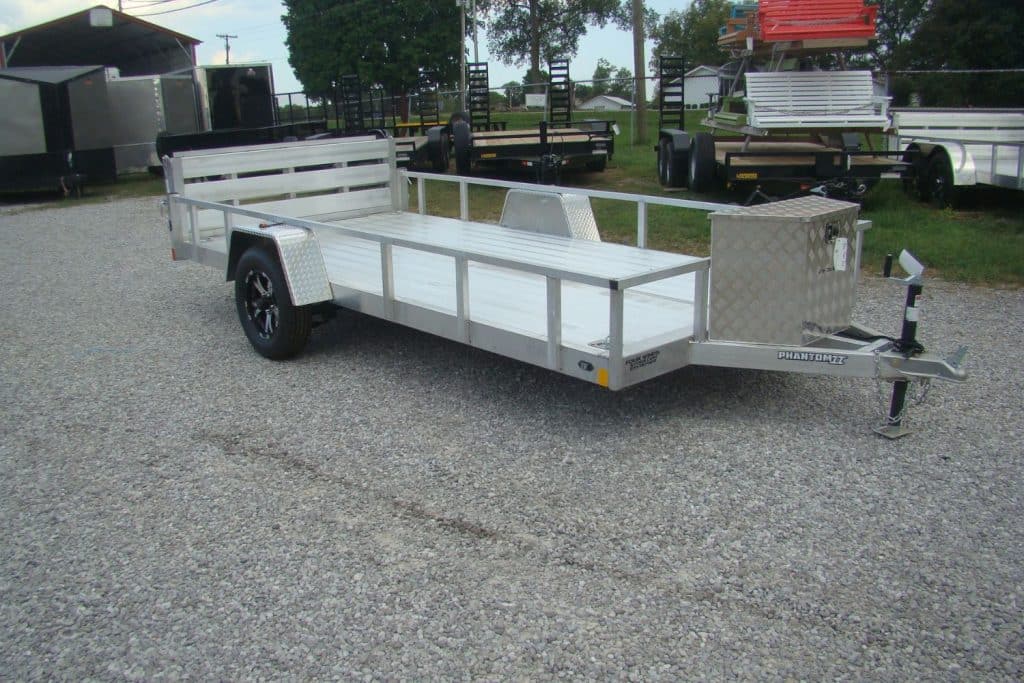
Just like any other part of the trailer we discussed above, it is crucial you examine the trailer’s frame and body for any indication of corrosion or rust. Addressing any issues immediately helps prevent further deterioration. Check for the following trailer maintenance tips to keep the frame and body of your trailer in good condition.
- Bolts
Examine all bolts to make sure they are undamaged and secure. If there are any loose bolts, make sure you’re replacing them promptly, tightening them to the recommended torque specifications.
- Weld Inspection
If your trailer has a welded frame, check the welds for any signs of cracking, stress, or weakness.
- Lights and Wiring
Make sure all the lights are working correctly and the wiring is in good condition. Fix any issues with electrical components promptly to keep visibility and safety on the road.
Hooks and Safety Chains
Check the safety chains to ensure they are securely attached to both the trailer hitch and the towing vehicle. Make sure the attachment points are in good condition and free from any damage that could jeopardize their strength. Consider these trailer maintenance tips for your hooks and chains.
Inspect the hooks on the safety chains for any signs of deformation, wear, or damage. Pay attention to moving parts and stress points to identify potential weak spots. Occasionally, perform a functional test by applying pressure to the safety chains to make sure the hooks disengage and engage smoothly. This will help you identify any problems with the mechanism.
By following this comprehensive trailer maintenance checklist, you can boost the lifespan and performance of your trailer. Regular inspections and preventative measures not only ensure a secure towing experience but also save you from potentially expensive repairs in the future. Keep in mind, that a well-maintained trailer is a reliable companion on your journeys.
Four Winds Trailers

Are you looking for a trailer that matches your hauling needs? Look no further than our durable and reliable trailers! Whether you’re gearing up for an outdoor adventure, or transporting business materials, our range of trailers has got you covered. Our trailers are built to handle various loads while ensuring a smooth and secure towing experience.
